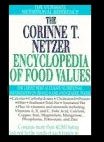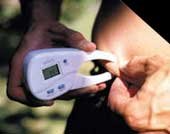Bodybuilding: Hobby, sport, art, science, profession. Regardless of the name you wish call it, it cannot be denied that to build quality muscle, bodybuilding must be a twenty-four hour endeavor and commitment.
When undertaking any hobby, job or profession, specific supplies and equipment are necessary for success to be realized. When desiring to be a bodybuilder, absolute commitment is required. Absolute commitment necessitates absolute preparedness and precision. Physical tools provide for these requirements.
The following is a list of tools that are mandatory to have, should success be realized. Lacking these tools, or lacking a working knowledge of these tools, will come at the expense of years of progress. Familiarize yourself with the tools listed herein, and utilize them all to maximize your success.

1. Food Guide

 Food guides are useful in conjunction with a food scale outlined below. Food guides give macronutrient values for specific quantities of food, and using a food scale and a calculator, you can determine the macronutrient values for the food you are about to consume. Simply weigh the food you are going to consume, look up the food in the guide, perform a mathematical operation using a multiple, and you will be provided with an exact value that you can use to perfectly tailor your eating habits to match your dietary needs.
Food guides are useful in conjunction with a food scale outlined below. Food guides give macronutrient values for specific quantities of food, and using a food scale and a calculator, you can determine the macronutrient values for the food you are about to consume. Simply weigh the food you are going to consume, look up the food in the guide, perform a mathematical operation using a multiple, and you will be provided with an exact value that you can use to perfectly tailor your eating habits to match your dietary needs.
Using a food guide saves years of progress and can add massive amounts of muscle to your frame.
Be sure to check out Bodybuilding.com's HUGE NUTRIENT DATABASE!

2. Food Scale

It has been said that bodybuilding is 90% nutrition and 10% training. While the accuracy of this statement is somewhat questionable, all bodybuilders must realize that without a sufficient, adequate and exact supply of vitamins, minerals and macronutrients, muscular growth will be minimized at best, and non-existent at worst.
 Food scales are useful because they allow the athlete to precisely measure the amount of food that they will consume. This is crucial because nutrition is, regardless of the exact percentages, the most important aspect of the lifestyle.
Food scales are useful because they allow the athlete to precisely measure the amount of food that they will consume. This is crucial because nutrition is, regardless of the exact percentages, the most important aspect of the lifestyle.
Therefore, as a bodybuilder, the most important task should be determining the bodies nutritional requirements for muscular growth, and how much of the demand [brought about by weight training] is met with the supply [calculated using a food scale].
In the article Survival Strategies For The Traveling Bodybuilder! I wrote:
-
"Everything... operates according to the principles of supply and demand. It is important to determine what demand your body places upon you. Put another way, if demand is nutritional requirements brought about by…training, the supply… must be tailored to match it…."
The first step is determining "food value" - ie. mass, macronutrient content, etc. To gain a reading about the mass of the food, use a food weighing scale. For macronutrient content, consult an appropriate guide.
Food weighing scales are relatively cheap in cost and are a valuable tool in any bodybuilder's arsenal. Bodybuilding is about stimulus and response. One goes to the gym to lift weights to stimulate the body to grow. While many do stimulate the body correctly, growth is sometimes fleeting. This is where many athletes experience a breakdown: their nutritional regimen. To avoid years of mistakes, use a food scale to dial-in your nutrition regimen.

3. Fat Calipers

 Body composition is always on the mind of the athlete. Everyone wants more muscle, less fat, and a better body. The first step to building a great body is to determine how much fat and muscle you have. Fat calipers are great for this purpose. Fat calipers, long a tool of professionals and serious athletes, are a priceless tool that provide accurate readings regarding body composition.
Body composition is always on the mind of the athlete. Everyone wants more muscle, less fat, and a better body. The first step to building a great body is to determine how much fat and muscle you have. Fat calipers are great for this purpose. Fat calipers, long a tool of professionals and serious athletes, are a priceless tool that provide accurate readings regarding body composition.
If, for example, the athlete wanted to know how much muscle he or she REALLY had (as opposed to how it empirically appeared), body fat calipers would yield a resultant with ease. Calipers are a fundamental tool that every athlete should have.

4. Weighing Scale

Like fat calipers, a weighing scale is a crucial piece of equipment that every athlete should own. It will provide the athlete with a raw readout of body mass.
 Not all scales are created equal. When looking to purchase a scale, a digital device is recommended. Over time non-digital devices loose their accuracy, and can give faulty responses. A digital scale will, if used correctly, avoid these problems. While more expensive, a digital scale will prove its worth in the long run by consistently performing correctly.
Not all scales are created equal. When looking to purchase a scale, a digital device is recommended. Over time non-digital devices loose their accuracy, and can give faulty responses. A digital scale will, if used correctly, avoid these problems. While more expensive, a digital scale will prove its worth in the long run by consistently performing correctly.

5. Protein Powder

Ask any serious athlete what macronutrient they could always use more of, and the answer will unanimously be: protein! Protein is the stuff of life, and will always rule as king in the bodybuilding and fitness world. Protein is one of three macronutrients (the others are fats and carbohydrates), and is structured in chains. These chains, called polypeptides, are made of amino acids.
When attempting to choose a protein product, it is important to realize that not all proteins are created equal. The proteins available in supplemental form are: Casien, Whey, Egg and Soy.
Depending on the protein chosen, price and quality vary drastically. For specifics on what to consider when looking to purchase a protein powder, refer to the publication What Should You Look For In A Protein Powder?

6. Gym Bag

 For the committed, a gym bag is a must. While some gym's offer locker rental services, not all do. This can make transporting equipment [shorts, shoes, etc] a difficult and unpleasant task. At times like these, it helps to have a durable, spacious, functional, gym bag to meet the challenge.
For the committed, a gym bag is a must. While some gym's offer locker rental services, not all do. This can make transporting equipment [shorts, shoes, etc] a difficult and unpleasant task. At times like these, it helps to have a durable, spacious, functional, gym bag to meet the challenge.
When looking for an appropriate gym bag, be sure to select one made of durable material, with quality stitching, and a spacious interior.

7. Cooler Bag

Bodybuilders must consume a lot of quality food to ensure growth. To maintain nitrogen balance one must eat every 2 hours or so. When on the go, this can prove difficult. Time management is key when planning out a structured nutrition plan. A structured nutrition plan denotes quality meals, consumed with consistent frequency. A cooler bag helps to ensure this frequency by allowing meals to be transported easily.

Conclusion

Bodybuilding, like any other profession, has tools of the trade. These tools will increase chances of success, if used correctly. Obtain, and use, the tools outlined in this publication. Your physique will reward you for it.
Disclaimer
The information provided in this publication is for educational and informational purposes only and does not serve as a replacement to care provided by your own personal health care team or physician. The author does not render or provide medical advice, and no individual should make any medical decisions or change their health behavior based on information provided here. Readers are encouraged to confirm the information contained herein with other sources. Readers and consumers should review the information in this publication carefully with their professional health care provider. The information in this or other publications authored by the writer is not intended to replace medical advice offered by physicians. Reliance on any information provided by the author is solely at your own risk. The author does not recommend or endorse any specific tests, products, medication, procedures, opinions, or other information that may be presented in the publication. The author does not control information, advertisements, content, and articles provided by discussed third-party information suppliers. Further, the author does not warrant or guarantee that the information contained in written publications, from him or any source is accurate or error-free. The author accepts no responsibility for materials contained in the publication that you may find offensive. You are solely responsible for viewing and/or using the material contained in the authored publications in compliance with the laws of your country of residence, and your personal conscience. The author will not be liable for any direct, indirect, consequential, special, exemplary, or other damages arising from the use of information contained in this or other publications.
Copyright © Clayton South, 2003 All rights reserved.
Without limiting the rights under copyright reserved above, no part of this publication may be reproduced, stored in or introduced into a retrieval system, or transmitted in any form, or by any means (electronic mechanical, photocopying, recording, or otherwise), without the prior written permission of the copyright holder and author of this publication.
Thanks,
